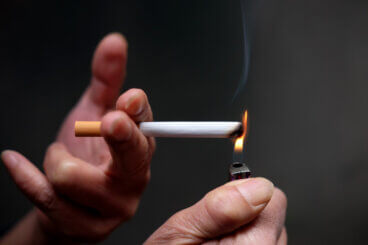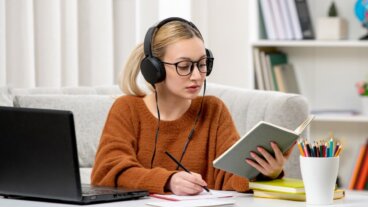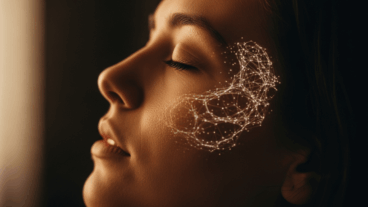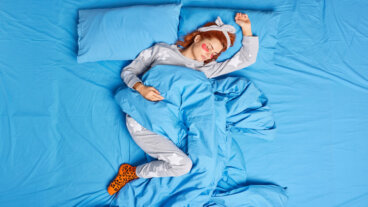Het omgaan met stress: zeven handige tips


Beoordeeld en goedgekeurd door de psycholoog Sergio De Dios González
Stress is een van de grootste problemen in onze moderne wereld, vooral in de meer ontwikkelde delen. Het is niet makkelijk om kalm te blijven in een wereld die op volle toeren draait. Noch is het makkelijk om te dealen met het lawaai en de vijandigheid van de grote steden van tegenwoordig. Vanwege dit alles is omgaan met stress geen eenvoudige taak.
Op zowel korte als lange termijn kan stress ons lichaam en onze geest schade toebrengen. Veel lichamelijke ziekten komen voort uit te veel stress. Tegelijkertijd blokkeert stress onze geest, waardoor we niet helder kunnen denken en het onze relaties beïnvloedt.
Wees echter niet bang. Omgaan met stress is mogelijk door enkele eenvoudige methoden te gebruiken. Alles komt neer op het inlassen van een onderbreking en het toepassen van enkele van de trucs die we hier zullen uitleggen.
“Neem rust; het veld dat rust heeft gehad geeft een overvloedige oogst. ”
-Ovid-

1. Omgaan met stress: identificeer het moment waarop de stress begon
Stress herkennen is niet zo eenvoudig als het op het eerste gezicht lijkt. Vaak merken we pas dat we gestrest zijn als het al een hoog niveau heeft bereikt.
Stress manifesteert zich op zowel fysieke als emotionele manieren. Het kan snel aan intensiteit toenemen of zich achter de schermen op de vlakte houden.
De fysieke tekenen van stress zijn spierspanning, vooral in de kaak, nek of schouders. Ook kan stress spanning in het gezicht veroorzaken, waardoor je lippen vaak een dunne lijn vormen.
Emotioneel gezien is er sprake van een gevoel van irritatie, vermengd met angst. Deze emoties vertellen ons dat het tijd is om een einde te maken aan onze stress.
2. Gebruik ademhalingstechnieken
Ademhalen is iets wat we sowieso al doen, en dus is het een hulpmiddel dat we altijd bij de hand hebben als het aankomt op omgaan met stress. Het is een uitstekende manier om wat rust in je leven te brengen. Het is bewezen dat een langzame, ritmische ademhaling de nervus vagus activeert. Deze zenuw helpt je te ontspannen waardoor je stress kunt bestrijden.
Soms hoef je alleen maar een comfortabele houding te vinden en diep adem te halen. Probeer je te concentreren op je longen die zich vullen met lucht. Adem dan langzaam uit. Na twee of drie minuten zal je stress verminderen.
3. Leid je aandacht af
Stress wordt geassocieerd met vecht- of vluchtreacties. Daarom richten we al onze aandacht op het ding dat aanleiding gaf tot de spanning.
Hoe meer je echter fixeert op deze bronnen van rusteloosheid, hoe gestrester je je zult voelen.
Daarom is het zo belangrijk dat je probeert je aandacht af te leiden. Kijk naar iets om je heen. Probeer het mentaal te beschrijven, met zoveel mogelijk details.
Herhaal vervolgens dezelfde oefening met twee andere objecten. Dit zal je helpen je stress te controleren, je impulsen te reguleren en je onmiddellijke emotionele kijk uit te breiden.

4. Kijk naar een ontspannen beeld
Beelden brengen sensaties over op hun waarnemers. Daarom is het goed om altijd een foto of ander beeld van iets ontspannends bij de hand te hebben. Goed zijn afbeeldingen van landschappen, vooral als we ons bevinden op eenzame plaatsen of plaatsen waar het vaak koud is, en van hele groene omgevingen of omgevingen met veel water.
Wanneer je je gestrest voelt, kan het bekijken van deze beelden je helpen te ontspannen. Het is ook een manier om je geest te richten op iets aangenaams, waardoor rusteloosheid wordt verminderd.
5. Herinterpreteer de ervaring
Soms wordt stress erger als we erop focussen. Je voelt te veel angst en wilt er zo snel mogelijk vanaf. Omdat dit niet altijd makkelijk is, maken we ons alleen maar meer zorgen in plaats van te kalmeren.
Het is dus belangrijk om onze stress te identificeren en te accepteren en vervolgens methoden te gebruiken om deze te controleren.
Probeer alle manieren te herkennen waarop je stress zich voordoet. Wat voel je in je lichaam? Hoe zit je of sta je? Hoe snel klopt je hart? Wat voor soort gedachten komen er in je op?
Deze vragen helpen je te herinterpreteren wat je voelt. Het gevoel van spanning kan zo geleidelijk verdwijnen.

6. Neem een anti-stress houding aan
Er zijn stresshoudingen en anti-stresshoudingen. Onder de eerste soort houdingen verstaan we bijvoorbeeld: op een verwrongen manier in de kleermakerszit zitten, stuiptrekkingen in je been die op een gestaag tempo plaatsvinden, het hebben van een gebogen rug en gespannen gezichtsspieren.
Sta je daarentegen rechtop en beweeg je je gezicht, dan zul je veel beter kunnen omgaan met stress. Het is een positie die vertrouwen en zekerheid brengt. Volgens een onderzoek van Health Psychology remt deze positie ook de productie van cortisol.
7. Doe een eenvoudige oefening met je handen
Het is bewezen dat we door met beide handen krachtige vuisten te maken en de handen vervolgens weer te openen, stress kunnen verminderen. Het is een agressief gebaar en om die reden helpt het om spanning vrij te laten.
Al deze kleine trucs zijn zeer effectief voor het omgaan met stress. Het is niet zo gek dat we stress ervaren in onze moderne wereld, vooral niet als we in grote steden wonen. Het belangrijkste is om je niet door stress te laten overmeesteren en in plaats daarvan deze hulpmiddelen te gebruiken om het te controleren.
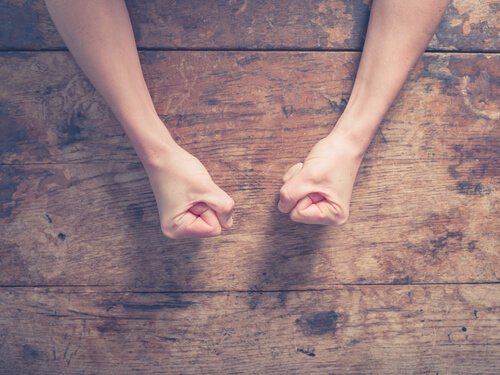
Stress is een van de grootste problemen in onze moderne wereld, vooral in de meer ontwikkelde delen. Het is niet makkelijk om kalm te blijven in een wereld die op volle toeren draait. Noch is het makkelijk om te dealen met het lawaai en de vijandigheid van de grote steden van tegenwoordig. Vanwege dit alles is omgaan met stress geen eenvoudige taak.
Op zowel korte als lange termijn kan stress ons lichaam en onze geest schade toebrengen. Veel lichamelijke ziekten komen voort uit te veel stress. Tegelijkertijd blokkeert stress onze geest, waardoor we niet helder kunnen denken en het onze relaties beïnvloedt.
Wees echter niet bang. Omgaan met stress is mogelijk door enkele eenvoudige methoden te gebruiken. Alles komt neer op het inlassen van een onderbreking en het toepassen van enkele van de trucs die we hier zullen uitleggen.
“Neem rust; het veld dat rust heeft gehad geeft een overvloedige oogst. ”
-Ovid-

1. Omgaan met stress: identificeer het moment waarop de stress begon
Stress herkennen is niet zo eenvoudig als het op het eerste gezicht lijkt. Vaak merken we pas dat we gestrest zijn als het al een hoog niveau heeft bereikt.
Stress manifesteert zich op zowel fysieke als emotionele manieren. Het kan snel aan intensiteit toenemen of zich achter de schermen op de vlakte houden.
De fysieke tekenen van stress zijn spierspanning, vooral in de kaak, nek of schouders. Ook kan stress spanning in het gezicht veroorzaken, waardoor je lippen vaak een dunne lijn vormen.
Emotioneel gezien is er sprake van een gevoel van irritatie, vermengd met angst. Deze emoties vertellen ons dat het tijd is om een einde te maken aan onze stress.
2. Gebruik ademhalingstechnieken
Ademhalen is iets wat we sowieso al doen, en dus is het een hulpmiddel dat we altijd bij de hand hebben als het aankomt op omgaan met stress. Het is een uitstekende manier om wat rust in je leven te brengen. Het is bewezen dat een langzame, ritmische ademhaling de nervus vagus activeert. Deze zenuw helpt je te ontspannen waardoor je stress kunt bestrijden.
Soms hoef je alleen maar een comfortabele houding te vinden en diep adem te halen. Probeer je te concentreren op je longen die zich vullen met lucht. Adem dan langzaam uit. Na twee of drie minuten zal je stress verminderen.
3. Leid je aandacht af
Stress wordt geassocieerd met vecht- of vluchtreacties. Daarom richten we al onze aandacht op het ding dat aanleiding gaf tot de spanning.
Hoe meer je echter fixeert op deze bronnen van rusteloosheid, hoe gestrester je je zult voelen.
Daarom is het zo belangrijk dat je probeert je aandacht af te leiden. Kijk naar iets om je heen. Probeer het mentaal te beschrijven, met zoveel mogelijk details.
Herhaal vervolgens dezelfde oefening met twee andere objecten. Dit zal je helpen je stress te controleren, je impulsen te reguleren en je onmiddellijke emotionele kijk uit te breiden.

4. Kijk naar een ontspannen beeld
Beelden brengen sensaties over op hun waarnemers. Daarom is het goed om altijd een foto of ander beeld van iets ontspannends bij de hand te hebben. Goed zijn afbeeldingen van landschappen, vooral als we ons bevinden op eenzame plaatsen of plaatsen waar het vaak koud is, en van hele groene omgevingen of omgevingen met veel water.
Wanneer je je gestrest voelt, kan het bekijken van deze beelden je helpen te ontspannen. Het is ook een manier om je geest te richten op iets aangenaams, waardoor rusteloosheid wordt verminderd.
5. Herinterpreteer de ervaring
Soms wordt stress erger als we erop focussen. Je voelt te veel angst en wilt er zo snel mogelijk vanaf. Omdat dit niet altijd makkelijk is, maken we ons alleen maar meer zorgen in plaats van te kalmeren.
Het is dus belangrijk om onze stress te identificeren en te accepteren en vervolgens methoden te gebruiken om deze te controleren.
Probeer alle manieren te herkennen waarop je stress zich voordoet. Wat voel je in je lichaam? Hoe zit je of sta je? Hoe snel klopt je hart? Wat voor soort gedachten komen er in je op?
Deze vragen helpen je te herinterpreteren wat je voelt. Het gevoel van spanning kan zo geleidelijk verdwijnen.

6. Neem een anti-stress houding aan
Er zijn stresshoudingen en anti-stresshoudingen. Onder de eerste soort houdingen verstaan we bijvoorbeeld: op een verwrongen manier in de kleermakerszit zitten, stuiptrekkingen in je been die op een gestaag tempo plaatsvinden, het hebben van een gebogen rug en gespannen gezichtsspieren.
Sta je daarentegen rechtop en beweeg je je gezicht, dan zul je veel beter kunnen omgaan met stress. Het is een positie die vertrouwen en zekerheid brengt. Volgens een onderzoek van Health Psychology remt deze positie ook de productie van cortisol.
7. Doe een eenvoudige oefening met je handen
Het is bewezen dat we door met beide handen krachtige vuisten te maken en de handen vervolgens weer te openen, stress kunnen verminderen. Het is een agressief gebaar en om die reden helpt het om spanning vrij te laten.
Al deze kleine trucs zijn zeer effectief voor het omgaan met stress. Het is niet zo gek dat we stress ervaren in onze moderne wereld, vooral niet als we in grote steden wonen. Het belangrijkste is om je niet door stress te laten overmeesteren en in plaats daarvan deze hulpmiddelen te gebruiken om het te controleren.

Alle siterte kilder ble grundig gjennomgått av teamet vårt for å sikre deres kvalitet, pålitelighet, aktualitet og validitet. Bibliografien i denne artikkelen ble betraktet som pålitelig og av akademisk eller vitenskapelig nøyaktighet.
- American Psychological Association [APA]. (2007). Stress a Major Health Problem in The U.S., Warns APA. Consultado el 30 de marzo de 2023. https://www.apa.org/news/press/releases/2007/10/stress
- Biradar, S. & Patil, A. (2021). Effectiveness of Guided Imagery Technique in Reduction of Stress Level among Chronic Renal Failure Patients. Indian Journal of Forensic Medicine & Toxicology, 15(3), 4105-4111. https://medicopublication.com/index.php/ijfmt/article/view/15938
- Burg, M. M., Schwartz, J. E., Kronish, I. M., Diaz, K. M., Alcantara, C., Duer-Hefele, J., & Davidson, K. W. (2017). Does Stress Result in You Exercising Less? Or Does Exercising Result in You Being Less Stressed? Or Is It Both? Testing the Bi-directional Stress-Exercise Association at the Group and Person (N of 1) Level. Annals of behavioral medicine : a publication of the Society of Behavioral Medicine, 51(6), 799–809. https://www.ncbi.nlm.nih.gov/pmc/articles/PMC5597451/
- Can, Y. S., Iles-Smith, H., Chalabianloo, N., Ekiz, D., Fernández-Álvarez, J., Repetto, C., Riva, G., & Ersoy, C. (2020). How to Relax in Stressful Situations: A Smart Stress Reduction System. Healthcare (Basel, Switzerland), 8(2), 100. https://www.ncbi.nlm.nih.gov/pmc/articles/PMC7349817/
- Choi, D. W., Chun, S. Y., Lee, S. A., Han, K. T. & Park, E. C. (2018). Association between sleep duration and perceived stress: salaried worker in circumstances of high workload. International journal of environmental research and public health, 15(4), 1-11. https://www.ncbi.nlm.nih.gov/pmc/articles/PMC5923
- Cleveland Clinic. (2021, January 28). Stress. Consultado el 30 de marzo de 2023. https://my.clevelandclinic.org/health/articles/11874-stress
- Dolbier, C. L. & Rush, T. E. (2012). Efficacy of abbreviated progressive muscle relaxation in a high-stress college sample. International Journal of Stress Management, 19(1), 48-68. https://psycnet.apa.org/record/2012-04979-002
- de la Torre, A., Caparros, R. A., Bastard, T., Vico, F. J. & Buela, G. (2017). Acute stress recovery through listening to Melomics relaxing music: A randomized controlled trial. Nordic Journal of Music Therapy, 26(2), 124-141. https://www.tandfonline.com/doi/abs/10.1080/08098131.2015.1131186
- Emmons, R. A. (2007). Thanks!: How the new science of gratitude can make you happier. Houghton Mifflin Harcourt.
- Ewert, A. & Chang, Y. (2018). Levels of nature and stress response. Behavioral Sciences, 8(5), 1-13. https://www.ncbi.nlm.nih.gov/pmc/articles/PMC5981243/
- Fekete, E. & Deichert, N. (2022). A brief gratitude writing intervention decreased stress and negative affect during the COVID-19 pandemic. Journal of Happiness Studies, 23(6), 2427-2448. https://www.ncbi.nlm.nih.gov/pmc/articles/PMC8867461/.
- Ford, B. Q., Lam, P., John, O. P. & Mauss, I. B. (2018). The psychological health benefits of accepting negative emotions and thoughts: Laboratory, diary, and longitudinal evidence. Journal of personality and social psychology, 115(6), 1075-1092. https://www.ncbi.nlm.nih.gov/pmc/articles/PMC5767148/
- Gerritsen, R. J. & Band, G. P. (2018). Breath of life: The respiratory vagal stimulation model of contemplative activity. Frontiers in human neuroscience, 12(397), 1-25. https://www.ncbi.nlm.nih.gov/pmc/articles/PMC6189422/
- Gonzalez, M. J. & Miranda-Massari, J. R. (2014). Diet and stress. Psychiatric Clinics, 37(4), 579-589. https://pubmed.ncbi.nlm.nih.gov/25455067/
- Grassini, S. (2022). A systematic review and meta-analysis of nature walk as an intervention for anxiety and depression. Journal of Clinical Medicine, 11(6), 1-15. https://www.ncbi.nlm.nih.gov/pmc/articles/PMC8953618/
- Hasegawa, H., Uozumi, T.& Ono, K. (2004). Psychological and physiological evaluations of music listening for mental stress. The Hokkaido Journal of Medical Science, 79(3), 225-235. https://europepmc.org/article/med/15188631
- Jallo, N., Ruiz, R. J., Elswick, R. K. & French, E. (2014). Guided imagery for stress and symptom management in pregnant African American women. Evidence-based complementary and alternative medicine, 2014, 1-14. https://www.hindawi.com/journals/ecam/2014/840923/
- Jerath, R., Crawford, M. W., Barnes, V. A. & Harden, K. (2015). Self-regulation of breathing as a primary treatment for anxiety. Applied psychophysiology and biofeedback, 40(2), 107-115. https://link.springer.com/article/10.1007/s10484-015-9279-8
- Jo, H., Song, C. & Miyazaki, Y. (2019). Physiological benefits of viewing nature: A systematic review of indoor experiments. International Journal of Environmental Research and Public Health, 16(23), 1-23. https://www.ncbi.nlm.nih.gov/pmc/articles/PMC6926748/
- Kugali, S. N. & Natekar, D. S. (2020). Best Remedy: Effective and Safe Therapy as Guided Imagery in Cancer Patients. Indian Journal of Public Health Research & Development, 11(8), 122-126. https://medicopublication.com/index.php/ijphrd/article/view/10193
- Leger, K. A., Charles, S. T. & Almeida, D. M. (2020). Positive emotions experienced on days of stress are associated with less same-day and next-day negative emotion. Affective science, 1(1), 20-27. https://www.ncbi.nlm.nih.gov/pmc/articles/PMC8188996/
- Liu, J. J., Ein, N., Gervasio, J. & Vickers, K. (2019). The efficacy of stress reappraisal interventions on stress responsivity: A meta-analysis and systematic review of existing evidence. PLoS One, 14(2),1-22. https://journals.plos.org/plosone/article?id=10.1371/journal.pone.0212854
- Li, F., Luo, S., Mu, W., et al. (2021). Effects of sources of social support and resilience on the mental health of different age groups during the COVID-19 pandemic. BMC psychiatry, 21, 1-14. https://www.ncbi.nlm.nih.gov/pmc/articles/PMC7789076/.
- Ma, X., Yue, Z. Q., Gong, Z., et al. (2017). The effect of diaphragmatic breathing on attention, negative affect and stress in healthy adults. Frontiers in psychology, 8(874), 1-12. https://www.frontiersin.org/articles/10.3389/fpsyg.2017.00874/full?fbclid=IwAR2Yzjbt9glZxPoMDRnRf4MkzvFXHhspagUowQFODilbJlyNhI1gdw8DSAM
- Nair, S., Sagar, M., Sollers, J., Consedine, N. & Broadbent, E. (2015). Do slumped and upright postures affect stress responses? A randomized trial. Health Psychology, 34(6), 632-641. https://psycnet.apa.org/doiLanding?doi=10.1037%2Fhea0000146
- National Health Service. (2022, November 22). Stress. Consultado el 30 de marzo de 2023. https://www.nhs.uk/mental-health/feelings-symptoms-behaviours/feelings-and-symptoms/stress/
- Nollet, M., Wisden, W. & Franks, N. P. (2020). Sleep deprivation and stress: a reciprocal relationship. Interface focus, 10(3), 1-11. https://www.ncbi.nlm.nih.gov/pmc/articles/PMC7202382/
- Novais, P. G. N., Batista, K. D. M., Grazziano, E. D. & Amorim, M. H. C. (2016). The effects of progressive muscular relaxation as a nursing procedure used for those who suffer from stress due to multiple sclerosis1. Revista latino-americana de enfermagem, 24. https://www.scielo.br/j/rlae/a/XzGJgYLV9NkwKxWvdq3f6SN/abstract/?lang=en
- Olafsdottir, G., Cloke, P., Schultz, A., van Dyck, Z., Eysteinsson, T., Thorleifsdottir, B. & Vögele, C. (2016). Walking in nature has a stress-buffering effect on chronic but not acute stress. European Health Psychologist, 18, 486-486. https://www.ehps.net/ehp/index.php/contents/article/view/1839
- Peen, J., Dekker, J., Schoevers, R. A., Have, M. T., de Graaf, R. & Beekman, A. T. (2007). Is the prevalence of psychiatric disorders associated with urbanization? Social Psychiatry and Psychiatric Epidemiology, 42, 984-989. https://link.springer.com/article/10.1007/s00127-007-0256-2
- Schultchen, D., Reichenberger, J., Mittl, T., Weh, T. R., Smyth, J. M., Blechert, J. & Pollatos, O. (2019). Bidirectional relationship of stress and affect with physical activity and healthy eating. British journal of health psychology, 24(2), 315-333. https://www.ncbi.nlm.nih.gov/pmc/articles/PMC6767465/.
- Tost, H., Champagne, F. A. & Meyer, A. (2015). Environmental influence in the brain, human welfare and mental health. Nature neuroscience, 18(10), 1421-1431. https://www.nature.com/articles/nn.4108
- Toussaint, L., Nguyen, Q. A., Roettger, C., Dixon, K., Offenbächer, M., Kohls, N., … & Sirois, F. (2021). Effectiveness of progressive muscle relaxation, deep breathing, and guided imagery in promoting psychological and physiological states of relaxation. Evidence-Based Complementary and Alternative Medicine, 2021, 1-8. https://www.hindawi.com/journals/ecam/2021/5924040/
- Uusberg, A., Thiruchselvam, R. & Gross, J. J. (2014). Using distraction to regulate emotion: Insights from EEG theta dynamics. International Journal of Psychophysiology, 91(3), 254-260. https://www.sciencedirect.com/science/article/abs/pii/S0167876014000075?via%3Dihub
- Vlemincx, E., Van Diest, I. & Van den Bergh, O. (2016). A sigh of relief or a sigh to relieve: The psychological and physiological relief effect of deep breaths. Physiology & behavior, 165, 127-135. https://www.sciencedirect.com/science/article/abs/pii/S0031938416305121
- Yaribeygi, H., Panahi, Y., Sahraei, H., Johnston, T. P. & Sahebkar, A. (2017). The impact of stress on body function: A review. EXCLI journal, 16, 1057-1072. https://www.ncbi.nlm.nih.gov/pmc/articles/PMC5579396/.
- Witten, E., Ryynanen, J., Wisdom, S., Tipp, C. & Chan, S. W. (2023). Effects of soothing images and soothing sounds on mood and well‐being. British Journal of Clinical Psychology, 62(1), 158-179. https://bpspsychub.onlinelibrary.wiley.com/doi/abs/10.1111/bjc.12400
- World Health Organization. (2022, 5 de octubre). Physical activity. https://www.who.int/news-room/fact-sheets/detail/physical-activity
Deze tekst wordt alleen voor informatieve doeleinden aangeboden en vervangt niet het consult bij een professional. Bij twijfel, raadpleeg uw specialist.
